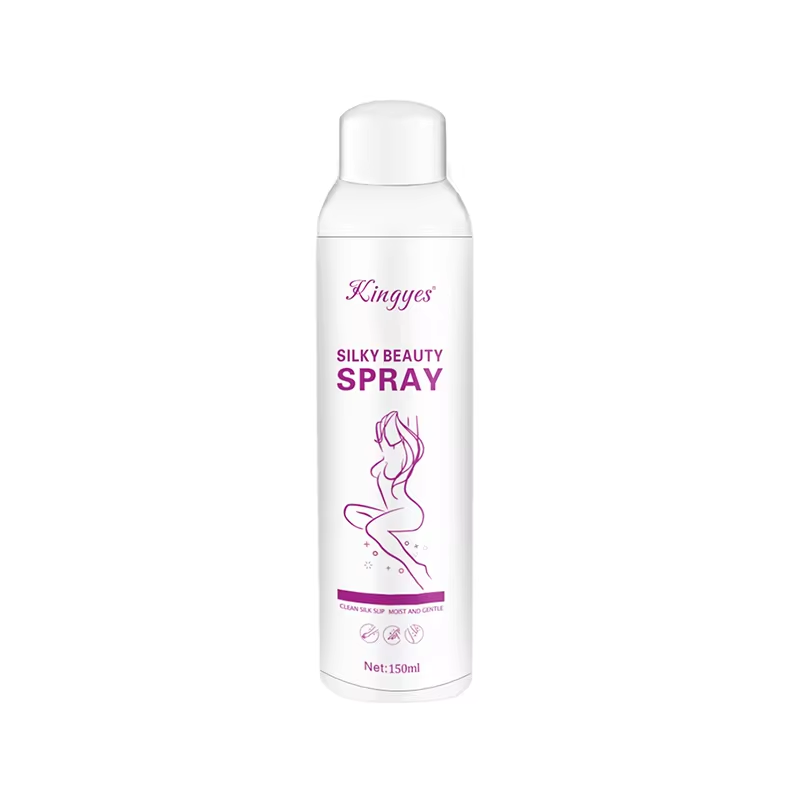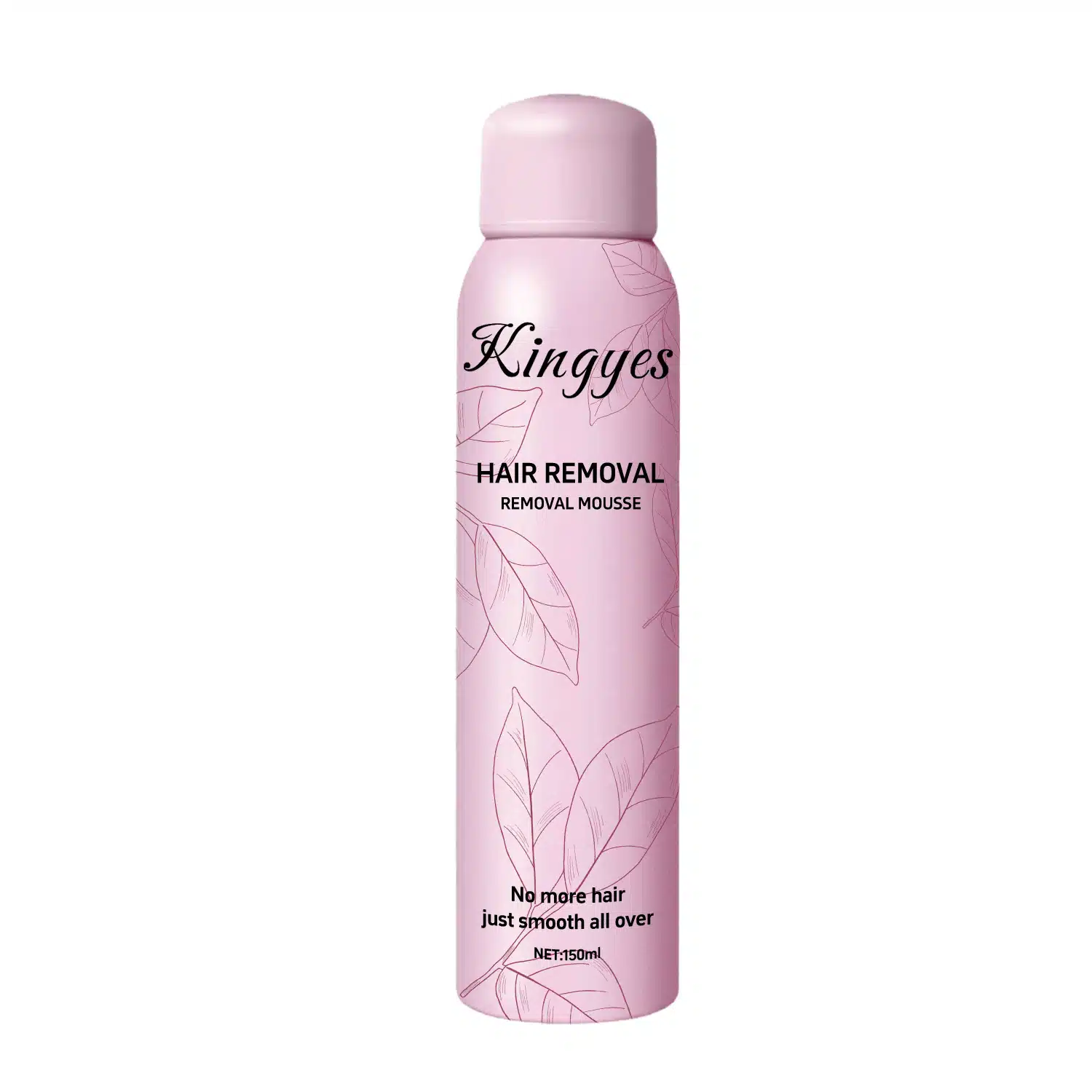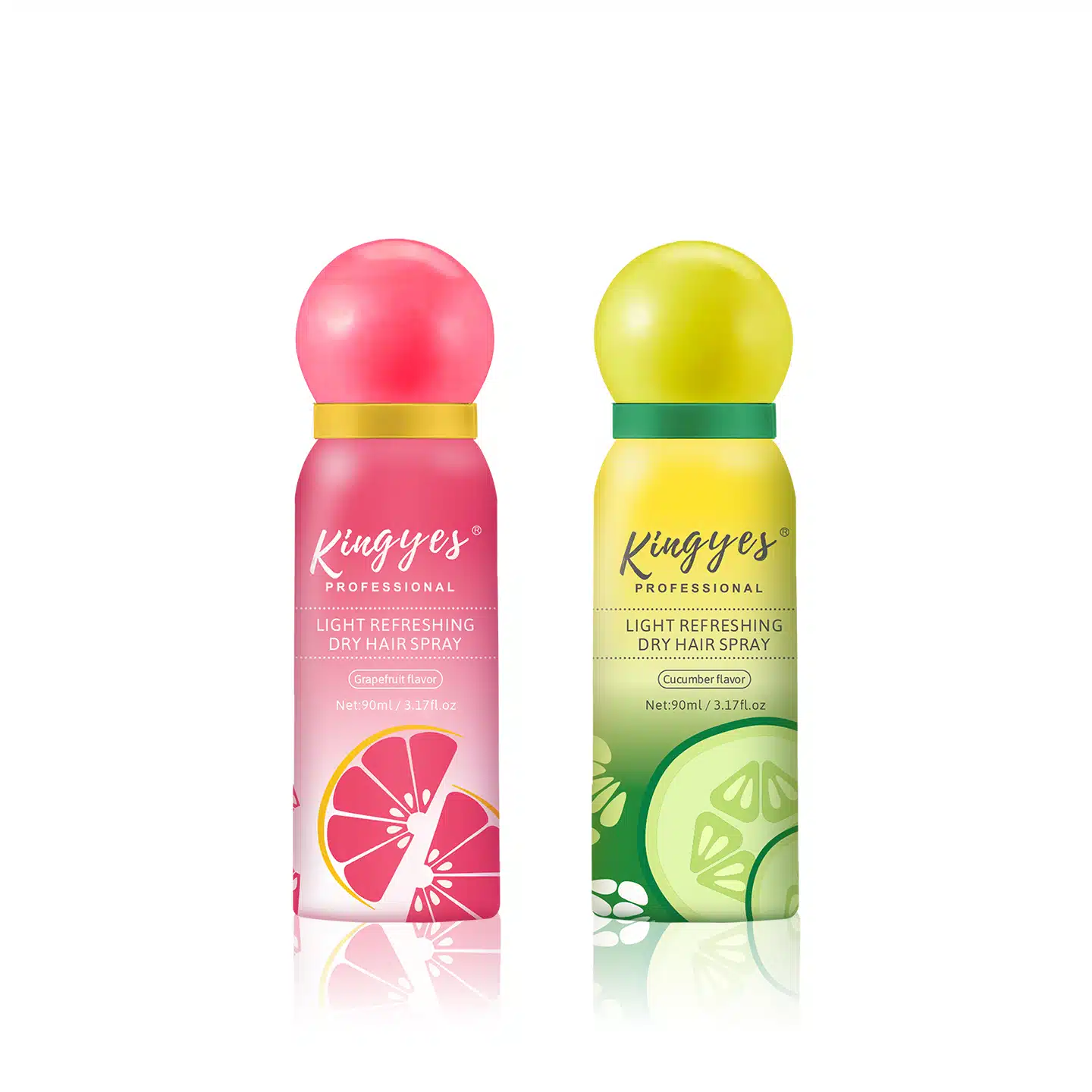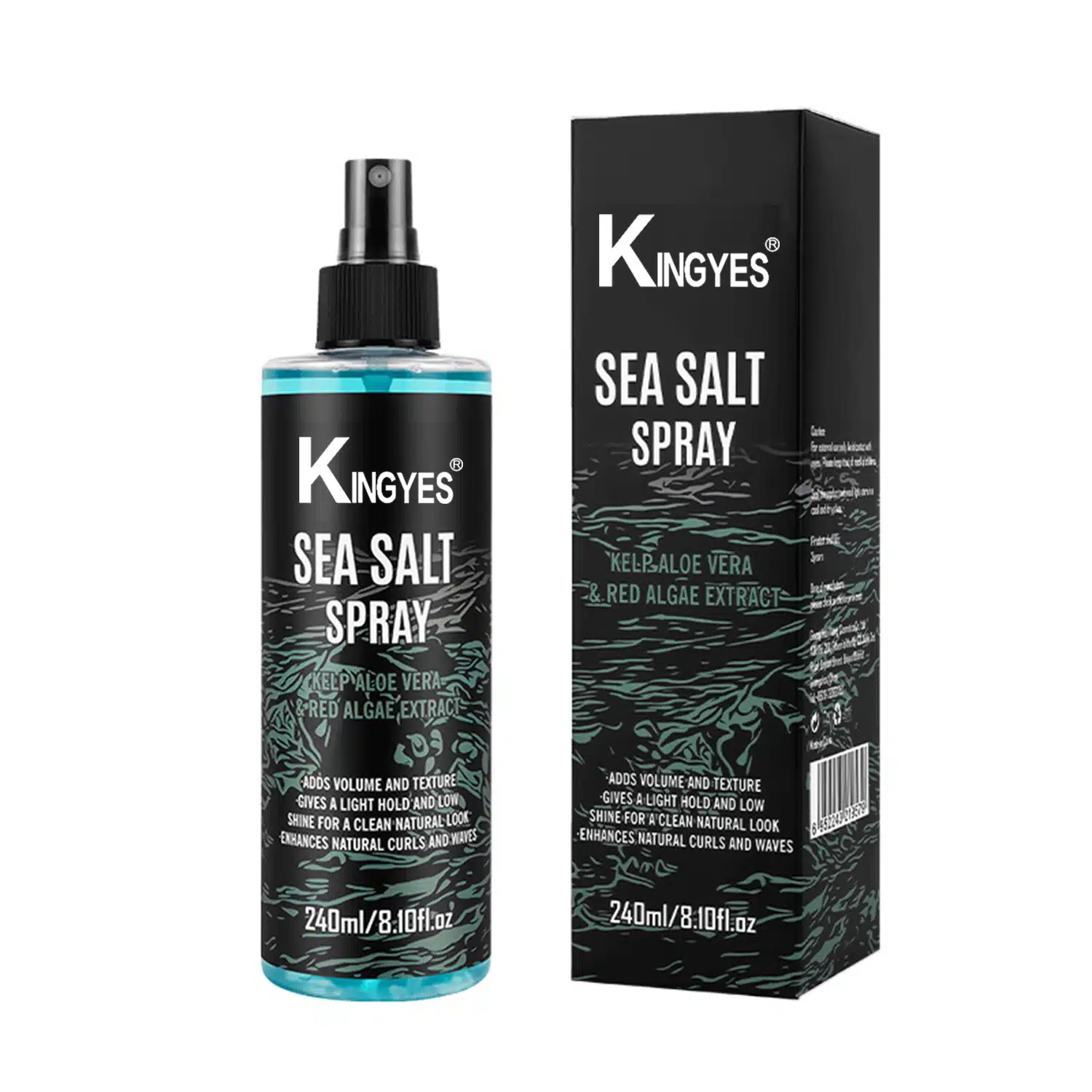
¿Qué hacen los fabricantes de cosméticos?
Índice
Fabricantes de cosméticos: Desvelando los secretos de sus productos de belleza favoritos
¿Alguna vez se ha preguntado cómo su barra de labios, base de maquillaje o crema hidratante favorita pasa de ser una idea a un producto bellamente envasado en la estantería? La respuesta está en el intrincado mundo de la fabricación de cosméticos. Fabricantes de cosméticos son los héroes anónimos de la industria de la belleza, responsables de convertir las materias primas en los productos cosméticos acabados que amamos y utilizamos cada día. Este artículo se adentra en el fascinante proceso de fabricación, explorando lo que hacen los fabricantes de cosméticos, desde la formulación y el control de calidad hasta el envasado y la distribución. Merece la pena leerlo porque ofrece una visión entre bastidores de los complejos procesos que garantizan la seguridad, eficacia y calidad de los productos cosméticos en los que confías.
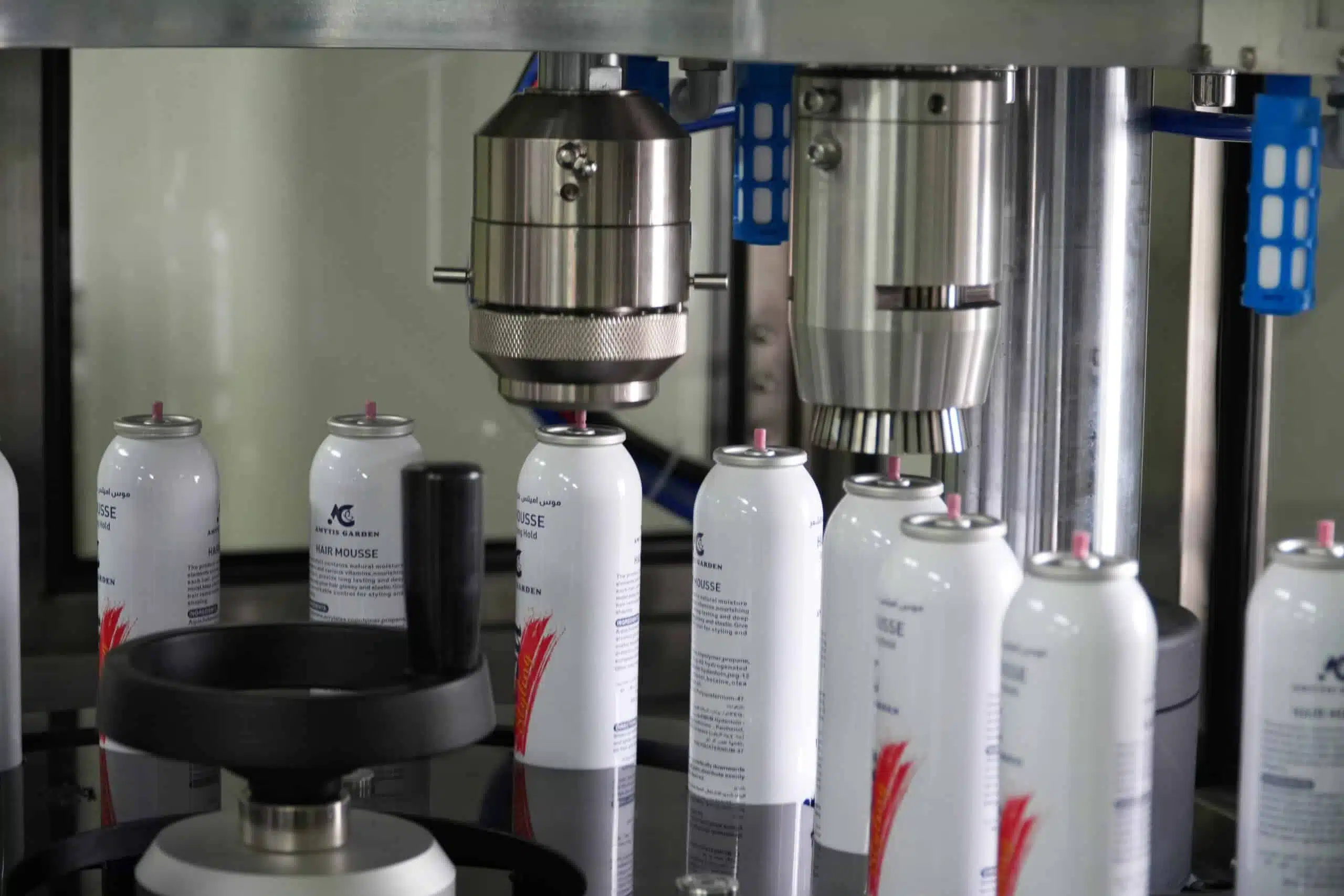
¿Qué hacen los fabricantes de cosméticos?
Cosmética fabricantes son empresas que fabrican productos cosméticos, que incluyen una amplia gama de artículos como maquillaje, productos para el cuidado de la piel, productos para el cuidado del cabello, fragancias y productos de cuidado personal. Su función principal es transformar las materias primas en productos cosméticos acabados que sean seguros, eficaces y atractivos para los consumidores. Garantizan que sus productos cumplan las normas de seguridad exigidas.
El tamaño de estas empresas de fabricación de cosméticos puede variar desde pequeñas operaciones artesanales hasta grandes corporaciones multinacionales con amplias instalaciones de fabricación. Independientemente de su tamaño, todos los cosméticos fabricantes deben cumplir normas estrictas y buenas prácticas de fabricación (BPF) para garantizar la calidad y seguridad de sus productos. La fabricación de cosméticos es un negocio complejo. Implica la formulación de cosméticos, el abastecimiento de ingredientes, la mezcla, el llenado, el envasado, el etiquetado y la distribución. La industria cosmética es muy competitiva.
¿Qué es el proceso de formulación en la fabricación de cosméticos?
El proceso de formulación es la base de la fabricación de cosméticos. Es donde se da vida al concepto de un producto cosmético mediante una cuidadosa selección y mezcla de materias primas. Los químicos cosméticos, también conocidos como químicos de formulación, son los responsables de desarrollar estas fórmulas.
Los químicos cosméticos eligen meticulosamente cada ingrediente en función de su función, seguridad y compatibilidad con otros ingredientes. Tienen en cuenta factores como la textura, el color, el aroma, el tiempo de conservación y la eficacia del producto final. Muchas empresas cosméticas invierten mucho tiempo y dinero en desarrollar nuevos productos. El proceso de formulación suele implicar una amplia investigación, experimentación y pruebas para lograr los resultados deseados y garantizar al mismo tiempo que el producto sea seguro y eficaz para los consumidores. Trabajan para garantizar que cada producto cosmético sea mejor que el anterior.
¿Cuáles son las etapas clave del proceso de fabricación de cosméticos?
El proceso de fabricación de cosméticos consta de varias etapas que transforman las materias primas en productos de belleza acabados. He aquí un resumen simplificado de los pasos clave:
- Abastecimiento de materias primas: Los fabricantes de cosméticos se abastecen cuidadosamente de materias primas de alta calidad procedentes de proveedores reputados. Estos materiales pueden incluir ingredientes naturales, compuestos sintéticos, fragancias, conservantes y otros. A menudo buscan fabricantes que puedan proporcionarles los ingredientes específicos que necesitan.
- Desarrollo de la formulación: Los químicos cosméticos desarrollan y perfeccionan la formulación del producto, que es esencialmente la receta del producto cosmético. Esto implica seleccionar la combinación adecuada de ingredientes y determinar las proporciones exactas necesarias para conseguir las propiedades deseadas. También deben asegurarse de que el producto final sea seguro para los consumidores.
- Mezclar y combinar: Las materias primas se pesan y miden con precisión según la formulación. A continuación, se mezclan en grandes mezcladoras industriales para crear una mezcla homogénea. Dependiendo del producto, esto puede implicar calentamiento, enfriamiento u otros procesos para garantizar una mezcla adecuada. Deben vigilar cuidadosamente aspectos como el pH y la viscosidad. También deben asegurarse de que no se pierde demasiada agua durante la mezcla.
- Pruebas de control de calidad: A lo largo del proceso de fabricación, se toman muestras y se analizan para garantizar que el producto cumple las normas de calidad exigidas. Esto incluye pruebas de factores como el pH, la viscosidad, el color, el olor y la contaminación microbiana.
- Relleno y envasado: Una vez que el producto ha pasado el control de calidad, se introduce en su envase primario, como botellas, tarros, tubos o compactos. A continuación, el envase se sella, se etiqueta y, con frecuencia, se coloca en envases secundarios, como cajas o cartones. A continuación, el producto final se envía para su venta.
- Almacenamiento y distribución: Los productos cosméticos acabados se almacenan en un depósito en condiciones adecuadas y luego se distribuyen a minoristas, distribuidores o directamente a los consumidores.
He aquí una tabla para explicar mejor el proceso.
| Paso | Descripción |
|---|---|
| 1. Obtención de materias primas | Los ingredientes se obtienen de los proveedores. Este es un paso crucial para garantizar la calidad del producto. |
| 2. Formulación | Los químicos cosméticos desarrollan la receta, seleccionando y combinando los ingredientes para conseguir las características deseadas del producto. |
| 3. Mezcla y combinación | Los ingredientes se pesan, mezclan y combinan con precisión, a menudo mediante calentamiento o enfriamiento, para crear una mezcla homogénea. |
| 4. 4. Control de calidad | A lo largo del proceso se analizan muestras para comprobar el pH, la viscosidad, el color, el olor, la contaminación microbiana y otros parámetros, con el fin de garantizar que el producto final cumple las normas de calidad. |
| 5. Llenado y envasado | El producto se envasa en recipientes primarios (botellas, tarros, tubos) y después se sella, se etiqueta y, a menudo, se coloca en envases secundarios. |
| 6. Almacenamiento y distribución | Los productos acabados se almacenan en condiciones adecuadas y se distribuyen a minoristas, distribuidores o directamente a los consumidores. |
¿Qué papel desempeña el control de calidad en la fabricación de cosméticos?
El control de calidad es un aspecto esencial de la fabricación de cosméticos. Implica una serie de comprobaciones y pruebas realizadas a lo largo del proceso de fabricación para garantizar que cada producto cosmético cumple las normas exigidas de seguridad, calidad y coherencia. El control de calidad no es sólo una formalidad; es un proceso crítico que protege tanto al consumidor como la reputación de la marca. Ayuda a garantizar que la calidad del producto sea buena.
Las medidas de control de calidad en la fabricación de cosméticos suelen incluir:
- Pruebas de materias primas: Verificar la identidad, pureza y calidad de las materias primas entrantes antes de utilizarlas en la producción.
- Pruebas en proceso: Supervisar y probar el producto en las distintas fases del proceso de fabricación para garantizar que cumple las especificaciones.
- Pruebas de productos acabados: Realización de una ronda final de pruebas en el producto acabado para verificar su seguridad, estabilidad y rendimiento. Esto incluye comprobar que el producto cumple todos los requisitos.
- Pruebas microbiológicas: Pruebas para detectar la presencia de microorganismos nocivos a fin de garantizar la seguridad del producto.
- Pruebas de estabilidad: Evaluar la vida útil y la estabilidad del producto en distintas condiciones de almacenamiento.
- Pruebas de envasado: Asegurarse de que el envase es adecuado para el producto y lo protegerá durante el almacenamiento y el transporte.
Fabricantes de cosméticos deben seguir estrictos procedimientos de control de calidad para cumplir los reglamentos y normas de la industria cosmética y mantener la confianza de sus clientes. Deben garantizar que sus productos cumplen todos los requisitos.
¿Qué importancia tienen los envases en la industria cosmética?
El envase desempeña un papel fundamental en la industria cosmética, con fines tanto funcionales como estéticos. No se trata sólo de contener el producto; también es una poderosa herramienta de marketing y un factor clave en la experiencia global del consumidor. El envase puede ser el factor decisivo para que un consumidor decida comprar o no un producto.
He aquí por qué el envase es tan importante en cosmética:
- Protección del producto: El envase protege el producto cosmético de la contaminación, los daños y la degradación durante el almacenamiento, el transporte y el uso. Ayuda a mantener la calidad, seguridad y eficacia del producto. También contribuye a garantizar que el producto final sea seguro para los consumidores.
- Conservación: Algunos ingredientes cosméticos son sensibles a la luz, el aire o la humedad. Un envasado adecuado puede ayudar a preservar la estabilidad del producto y prolongar su vida útil.
- Información y etiquetado: El envase proporciona información esencial a los consumidores, como el nombre del producto, los ingredientes, las instrucciones de uso, las advertencias y los datos del fabricante. También incluye información sobre cómo utilizar el producto y las precauciones que deben tomarse.
- Identidad de marca y marketing: El envase es un elemento crucial de la identidad de marca y el marketing. El diseño, los colores, los materiales y la estética general del envase pueden comunicar los valores, la personalidad y el público objetivo de la marca.
- Experiencia del usuario: El envase puede influir significativamente en la experiencia del usuario. Factores como la facilidad de apertura, dispensación y aplicación pueden influir en la satisfacción del consumidor y en la repetición de la compra.
- Diferenciación: En un mercado saturado, un envase único y llamativo puede ayudar a que un producto cosmético destaque entre la competencia y atraiga la atención de los consumidores.
Los fabricantes de cosméticos invierten importantes recursos en diseñar y desarrollar envases que no sólo sean funcionales y protectores, sino también visualmente atractivos y acordes con su imagen de marca. También pueden utilizar el envase para transmitir mensajes específicos sobre el producto, como sus ingredientes naturales, su posicionamiento de lujo o su respeto por el medio ambiente.
¿Cuál es la diferencia entre fabricación interna y externalización?
Las empresas de cosméticos tienen dos opciones principales a la hora de fabricar sus productos: la fabricación interna o la subcontratación de un fabricante. Cada opción tiene sus ventajas e inconvenientes.
Fabricación interna:
- Definición: Fabricación propia significa que la empresa de cosméticos posee y gestiona sus propias instalaciones de fabricación y se encarga de todos los aspectos del proceso de producción, desde la formulación hasta el envasado.
- Ventajas:
- Mayor control sobre el proceso de fabricación y la calidad del producto.
- Capacidad para proteger fórmulas y técnicas de fabricación patentadas.
- Posibilidad de mayores márgenes de beneficio a largo plazo.
- Más flexibilidad para ajustar la producción en función de la demanda.
- Desventajas:
- Requiere una importante inversión inicial en equipos, instalaciones y personal.
- Mayores costes de explotación, incluida la mano de obra, los servicios públicos y el mantenimiento.
- Mayor responsabilidad en el cumplimiento de la normativa y la garantía de calidad.
- Puede ser menos eficaz para las empresas más pequeñas o con líneas de productos limitadas.
Subcontratación (fabricación por contrato):
- Definición: La externalización consiste en contratar a un fabricante especializado para que fabrique productos cosméticos por cuenta de la empresa. La fabricación por contrato es cada vez más popular.
- Ventajas:
- Menor inversión inicial, ya que el fabricante por contrato proporciona el equipo y las instalaciones.
- Acceso a tecnología y conocimientos especializados.
- Mayor flexibilidad para aumentar o reducir la producción en función de la demanda.
- Reducción de las responsabilidades operativas, lo que permite a la empresa de cosméticos centrarse en otras áreas como el marketing y las ventas.
- Desventajas:
- Menos control sobre el proceso de fabricación y la calidad del producto.
- Posibilidad de problemas de comunicación y retrasos.
- Riesgo de robo de propiedad intelectual o duplicación no autorizada del producto.
- Puede ser más caro a largo plazo, dependiendo de las condiciones del contrato.
La elección entre la fabricación interna y la externalización depende de varios factores, como el tamaño y los recursos de la empresa de cosméticos, la complejidad de los productos cosméticos, el nivel de control deseado y los objetivos estratégicos a largo plazo de la empresa. Algunas empresas pueden optar por externalizar la producción de determinados productos y mantener otros en la empresa. Muchas empresas de cosméticos consideran que la externalización es la mejor opción para su negocio.
¿Qué retos afrontan los fabricantes de cosméticos?
Fabricantes de cosméticos se enfrentan a diversos retos en el dinámico y competitivo mercado actual. Estos retos pueden afectar a sus operaciones, su rentabilidad y su capacidad para satisfacer las demandas de los consumidores. He aquí algunos de los principales retos:
- Cumplimiento de la normativa: La industria cosmética está sujeta a una compleja red de reglamentos y normas que varían según el país y la región. Los fabricantes de cosméticos deben garantizar que sus productos, ingredientes, procesos de fabricación y etiquetado cumplen todas las normativas locales e internacionales aplicables. Deben garantizar que el producto es seguro.
- Seguridad y calidad de los productos: Mantener una calidad constante de los productos y garantizar su seguridad es primordial para los fabricantes de cosméticos. Cualquier fallo en el control de calidad puede provocar la retirada de productos, dañar la reputación de la marca y perjudicar a los consumidores.
- Gestión de la cadena de suministro: Los fabricantes de cosméticos dependen a menudo de una compleja cadena de suministro mundial para abastecerse de materias primas y componentes. Gestionar eficientemente esta cadena de suministro y garantizar la disponibilidad puntual de materiales de alta calidad puede ser todo un reto. Por eso muchas empresas optan por trabajar con un fabricante por contrato.
- Desafíos de la formulación: Desarrollar fórmulas cosméticas innovadoras y eficaces que satisfagan las expectativas de los consumidores y, al mismo tiempo, cumplan la normativa de seguridad puede ser un proceso complejo y laborioso. Los formuladores de cosméticos deben equilibrar creatividad, funcionalidad y seguridad en sus creaciones.
- Competición: La industria cosmética es muy competitiva, con una afluencia constante de nuevas marcas, productos y tendencias. Los fabricantes de cosméticos deben innovar continuamente, adaptarse a las cambiantes preferencias de los consumidores y diferenciarse para mantenerse por delante de la competencia.
- Sostenibilidad y cuestiones éticas: Los consumidores exigen cada vez más productos cosméticos sostenibles y éticos. Los fabricantes de cosméticos se ven presionados para adoptar prácticas respetuosas con el medio ambiente, reducir su huella de carbono, abastecerse de ingredientes sostenibles y garantizar un trato ético a los trabajadores en toda su cadena de suministro.
- Falsificación: La industria cosmética es especialmente vulnerable a la falsificación, que puede dañar la reputación de la marca, erosionar la confianza del consumidor y plantear graves riesgos de seguridad. Los fabricantes de cosméticos deben invertir en medidas contra la falsificación para proteger su propiedad intelectual y garantizar la autenticidad de sus productos.
- Mantenerse al día de las tendencias del sector: Los fabricantes de cosméticos deben estar al día de las tendencias del sector. Deben trabajar constantemente para crear productos nuevos e interesantes.
¿Cuáles son las mejores prácticas para la fabricación de cosméticos?
Para garantizar la producción de productos cosméticos seguros, de alta calidad y conformes con la normativa, los fabricantes de cosméticos deben adherirse a las mejores prácticas del sector. Estas son algunas de ellas:
- Siga las Buenas Prácticas de Fabricación (BPF): Las directrices sobre prácticas correctas de fabricación proporcionan un marco para garantizar la calidad y seguridad del producto a lo largo de todo el proceso de fabricación. Abarcan áreas como el diseño de las instalaciones, el mantenimiento de los equipos, la formación del personal, la manipulación de las materias primas, el control de los procesos de producción, las pruebas de control de calidad, la documentación y el mantenimiento de registros.
- Implantar sistemas sólidos de control de calidad: Establecer y mantener rigurosos procedimientos de control de calidad en todas las fases del proceso de fabricación, desde la inspección de las materias primas hasta las pruebas del producto acabado. Esto incluye pruebas microbiológicas, pruebas de estabilidad y pruebas de rendimiento.
- Materias primas de alta calidad: Trabaje con proveedores reputados que puedan suministrar materias primas de alta calidad que cumplan las especificaciones y normas de seguridad exigidas. Realice auditorías e inspecciones exhaustivas de los proveedores para garantizar su fiabilidad y cumplimiento. Es importante abastecerse de los mejores materiales.
- Invierta en la formación de los empleados: Impartir una formación completa a todos los empleados que participan en el proceso de fabricación. Debe abarcar temas como las buenas prácticas de fabricación, los procedimientos de control de calidad, los protocolos de seguridad y el funcionamiento de los equipos.
- Mantenga una documentación precisa: Mantenga registros detallados y precisos de todos los aspectos del proceso de fabricación, incluidos los detalles de la formulación, los registros de lotes, los resultados de las pruebas, los registros de mantenimiento de los equipos y los registros de distribución. Esta documentación es esencial para la trazabilidad, la garantía de calidad y el cumplimiento de la normativa.
- Validar procesos y equipos: Validar periódicamente los procesos y equipos críticos para garantizar que funcionan correctamente y que producen sistemáticamente productos que cumplen las especificaciones requeridas.
- Realice auditorías periódicas: Realizar auditorías internas y externas de las instalaciones de fabricación, los procesos y la documentación para identificar áreas de mejora y garantizar el cumplimiento continuo de las BPF y otras normas pertinentes.
- Manténgase informado sobre la normativa: Manténgase al día de las últimas normativas, directrices y tendencias del sector relacionadas con la fabricación de cosméticos y la seguridad de los productos. Esto incluye la normativa local e internacional.
Mediante la aplicación de estas buenas prácticas, los fabricantes de cosméticos pueden garantizar que sus productos sean seguros, eficaces y de alta calidad constante.
¿Cómo garantizan los fabricantes de cosméticos la seguridad de sus productos?
La seguridad de los productos es de vital importancia en la industria cosmética. Fabricantes de cosméticos tienen la obligación legal y ética de garantizar que sus productos sean seguros para los consumidores cuando se utilizan para los fines previstos. Estas son algunas de las medidas clave que adoptan para garantizar la seguridad de los productos:
- Selección y cribado de ingredientes: Los fabricantes de cosméticos seleccionan y examinan cuidadosamente todos los ingredientes utilizados en sus productos cosméticos. Deben garantizar que el producto sea seguro. Dan prioridad a los ingredientes con un historial de seguridad demostrado y evitan los que se sabe que son nocivos o alergénicos. También tienen en cuenta la concentración de cada ingrediente y sus posibles interacciones con otros ingredientes de la fórmula.
- Pruebas de seguridad: Antes de lanzar un nuevo producto cosmético, se somete a rigurosas pruebas de seguridad para evaluar su potencial de causar irritación, sensibilización u otras reacciones adversas. Esto puede implicar pruebas in vitro (con cultivos celulares o modelos de piel artificial) y/o pruebas in vivo (con voluntarios humanos en condiciones controladas).
- Pruebas microbiológicas: Los productos cosméticos se someten a pruebas para detectar la presencia de microorganismos nocivos, como bacterias, levaduras y moho. Los fabricantes de cosméticos deben garantizar que sus productos se conservan adecuadamente para evitar la proliferación microbiana durante su almacenamiento y uso.
- Pruebas de estabilidad: Los productos cosméticos se someten a pruebas de estabilidad para evaluar su vida útil y cómo les afectan las distintas condiciones de almacenamiento, como la temperatura, la humedad y la exposición a la luz. Esto ayuda a determinar la fecha de caducidad del producto y a garantizar que siga siendo seguro y eficaz durante toda su vida útil prevista.
- Cumplimiento de la normativa: Los fabricantes de cosméticos deben cumplir todas las normativas y directrices aplicables relacionadas con la seguridad de los productos, el etiquetado y las prácticas de fabricación en cada país donde vendan sus productos.
- Vigilancia postcomercialización: Incluso después del lanzamiento de un producto, los fabricantes de cosméticos siguen controlando su seguridad mediante programas de vigilancia postcomercialización. Esto implica recoger y analizar las opiniones de los consumidores, los informes de efectos adversos y otros datos para identificar cualquier posible problema de seguridad que pueda surgir.
Al aplicar estas medidas, los fabricantes de cosméticos se esfuerzan por minimizar los riesgos asociados a sus productos y ofrecer a los consumidores experiencias cosméticas seguras y agradables.
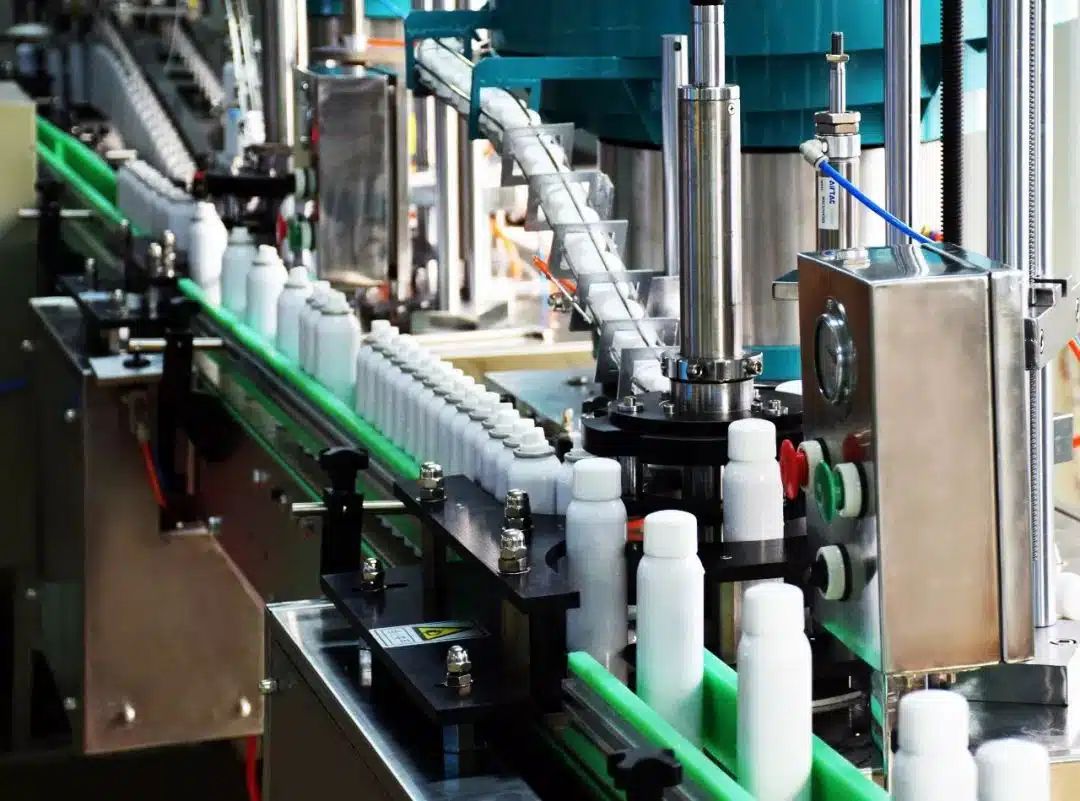
¿Qué software y tecnología se utilizan en la fabricación de cosméticos?
La industria de fabricación de cosméticos adopta cada vez más software y tecnología avanzados para agilizar las operaciones, mejorar la eficiencia, garantizar la calidad de los productos y potenciar la innovación. El software de fabricación de cosméticos es muy útil en el negocio de la fabricación de cosméticos. He aquí algunos ejemplos:
- Software de formulación cosmética: Los programas informáticos especializados ayudan a los químicos cosméticos a gestionar las fórmulas, hacer un seguimiento de la información sobre ingredientes, calcular costes y garantizar el cumplimiento de la normativa. Esto puede ayudar en la fabricación de productos cosméticos.
- Sistemas de gestión de la información de laboratorio (LIMS): El software LIMS se utiliza para gestionar los flujos de trabajo del laboratorio, hacer un seguimiento de las muestras, almacenar los resultados de las pruebas y generar informes. Esto ayuda a garantizar la precisión y trazabilidad de los datos de control de calidad.
- Sistemas de planificación de recursos empresariales (ERP): Los sistemas ERP integran diversas funciones empresariales, como la gestión de inventarios, la planificación de la producción, las adquisiciones y la contabilidad, en una única plataforma. Esto permite una mejor coordinación y visibilidad en toda la organización. Ayudan a las empresas a entregar los productos a tiempo.
- Sistemas de ejecución de la fabricación (MES): El software MES permite supervisar y controlar en tiempo real el proceso de fabricación. Ayuda a optimizar los programas de producción, realizar un seguimiento del trabajo en curso y garantizar el cumplimiento de los procedimientos operativos estándar.
- Software de fabricación por lotes: Este tipo de software ayuda a gestionar y controlar los procesos de producción por lotes, garantizando la coherencia y la precisión en la mezcla de ingredientes, la combinación y otras operaciones críticas. Si está elaborando su primer lote de productos, esto puede ser muy útil.
- Sistemas de gestión de la calidad (SGC): El software SGC ayuda a los fabricantes de cosméticos a gestionar y realizar un seguimiento de sus procesos de control de calidad, incluido el control de documentos, las acciones correctivas y preventivas (CAPA), las auditorías y la formación.
- Software de gestión de inventarios: Este software ayuda a controlar los niveles de inventario de materias primas, trabajos en curso y productos acabados, garantizando que se dispone de los materiales adecuados en el momento oportuno. Ayuda a las empresas a gestionar el inventario y la producción.
- Sistemas de gestión de las relaciones con los clientes (CRM): El software CRM ayuda a gestionar las interacciones con los clientes, hacer un seguimiento de los pedidos y recoger sus opiniones.
- Sistemas de gestión del ciclo de vida del producto (PLM): El software PLM ayuda a gestionar todo el ciclo de vida de un producto cosmético, desde el concepto inicial y la formulación hasta la fabricación, la comercialización y la eventual descatalogación.
Además del software, los fabricantes de cosméticos también están adoptando tecnologías avanzadas como la automatización, la robótica y el análisis de datos para mejorar la eficiencia, reducir costes y mejorar la calidad del producto. El uso de la tecnología en el mercado mundial de los cosméticos es cada vez mayor.
He aquí una tabla que resume los programas y sus usos.
| Software/Tecnología | Descripción |
|---|---|
| Software de formulación cosmética | Gestiona fórmulas, realiza un seguimiento de los ingredientes, calcula costes y garantiza el cumplimiento de la normativa. Ayuda en la elaboración de nuevos productos cosméticos. |
| LIMS | Gestiona los flujos de trabajo del laboratorio, realiza el seguimiento de las muestras, almacena los resultados de las pruebas y genera informes para el control de calidad. |
| Sistemas ERP | Integra funciones empresariales como el inventario, la planificación de la producción, las adquisiciones y la contabilidad. |
| MES | Proporciona supervisión y control en tiempo real de la fabricación, optimiza los calendarios y realiza un seguimiento del trabajo en curso. |
| Software de fabricación por lotes | Gestiona y controla los procesos de producción por lotes, garantizando la coherencia y precisión en la mezcla y combinación de ingredientes. |
| SGC | Gestiona y realiza el seguimiento de los procesos de control de calidad, control de documentos, CAPA, auditorías y formación. |
| Software de gestión de inventarios | Realiza un seguimiento de los niveles de existencias de materias primas, productos en curso y productos terminados. |
| Sistemas CRM | Gestiona las interacciones con los clientes, hace un seguimiento de los pedidos y recaba opiniones. |
| Sistemas PLM | Gestiona todo el ciclo de vida de un producto, desde su concepción hasta su retirada. |
| Automatización y robótica | Se utiliza en varias fases de la fabricación para mejorar la eficacia, reducir los costes de mano de obra y aumentar la precisión. Lo utilizan las empresas de fabricación de cosméticos para mejorar sus líneas de producción. |
| Análisis de datos e IA | Analiza datos de diversas fuentes para identificar tendencias, optimizar procesos, predecir la demanda y personalizar productos. |
Conclusión
Los fabricantes de cosméticos desempeñan un papel crucial en la industria de la belleza, transformando las materias primas en la variada gama de productos cosméticos que los consumidores utilizan a diario. El proceso de fabricación de cosméticos es complejo e implica una formulación cuidadosa, el abastecimiento de materias primas de alta calidad, mezclas y combinaciones precisas, un control de calidad riguroso y un envasado atractivo. Tanto si optan por la fabricación interna como por la externalización, los fabricantes de cosméticos deben afrontar numerosos retos, como el cumplimiento de la normativa, la seguridad de los productos, la gestión de la cadena de suministro y la intensa competencia. Si se adhieren a las mejores prácticas, adoptan la innovación y aprovechan el software y la tecnología avanzados, pueden garantizar la calidad y seguridad de sus productos y satisfacer las demandas en constante evolución del mercado de los cosméticos.
Los 10 aspectos más importantes de la fabricación de cosméticos
- Los fabricantes de cosméticos se encargan de producir una amplia gama de productos cosméticos y de cuidado personal, desde maquillaje y productos para el cuidado de la piel hasta cuidado del cabello y fragancias.
- El proceso de formulación, dirigido por químicos cosméticos, es crucial para desarrollar productos cosméticos seguros, eficaces y atractivos.
- El proceso de fabricación de cosméticos implica múltiples pasos, como la obtención de materias primas, la mezcla, la combinación, las pruebas de control de calidad, el llenado, el envasado y la distribución.
- El control de calidad es primordial en la fabricación de cosméticos para garantizar la seguridad del producto, su coherencia y el cumplimiento de la normativa.
- El envasado desempeña un papel fundamental en la protección del producto, la transmisión de información, la creación de identidad de marca y la mejora de la experiencia del usuario.
- Los fabricantes de cosméticos pueden elegir entre la fabricación interna o la subcontratación, cada una con sus ventajas e inconvenientes.
- Los fabricantes de cosméticos se enfrentan a numerosos retos, como cumplir la normativa, garantizar la seguridad y la calidad de los productos, gestionar cadenas de suministro complejas y mantenerse al día de las tendencias del sector y las demandas de los consumidores.
- Respetar las buenas
Comentarios
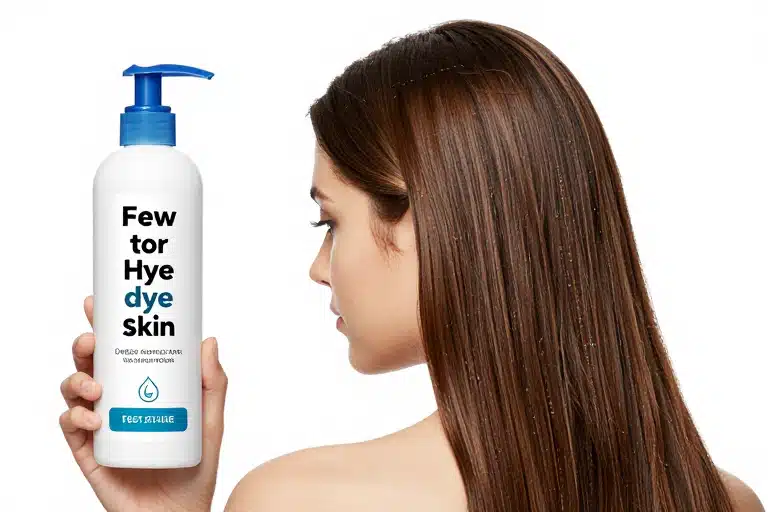
How to Remove Hair Dye from Skin: Fast, Safe to Fix Stains
Are you stuck with hair dye on your skin?
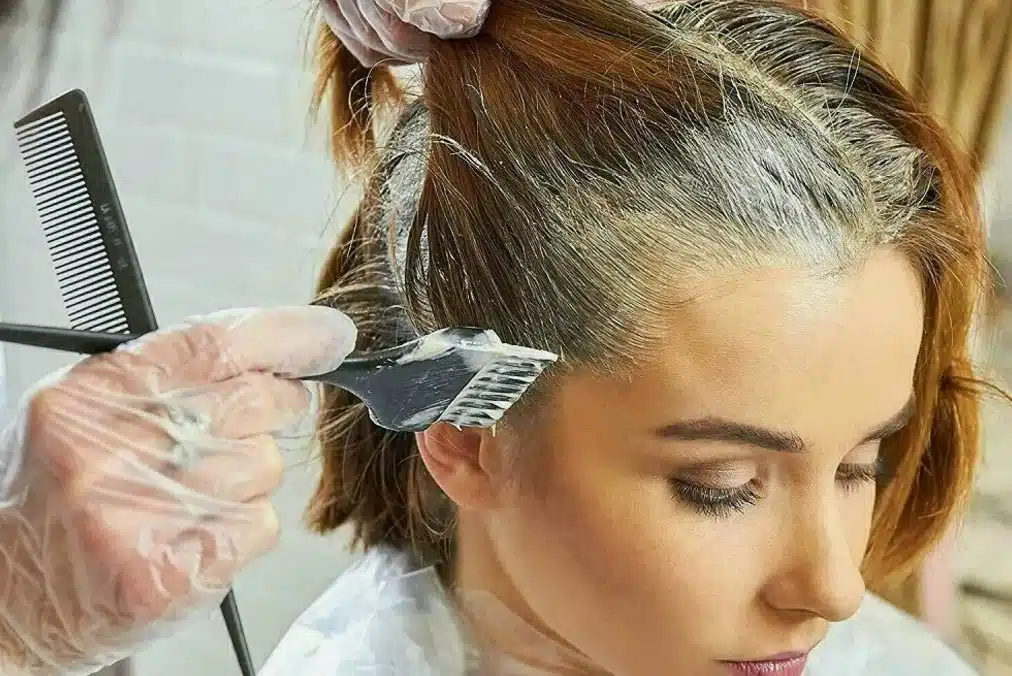
¿Es mejor un tinte permanente o semipermanente?
¿Está pensando en cambiar de color de pelo pero no sabe si elegir un tinte permanente o semipermanente?

¿Qué elimina la laca?
¿Te has preguntado alguna vez si la laca hace algo más que mantener el peinado en su sitio?

How to Curl Hair With a Flat Iron?
In this guide, we show you how to curl hair with a flat iron. You will learn how to make flat iron waves, beach waves with flat iron, and even spiral curls.

Cómo cooperar con las fábricas de cosméticos?
En el dinámico y competitivo sector de la belleza, asociarse con el fabricante de cosméticos adecuado es primordial para el éxito de su negocio de cosméticos.
- +86 151 1839 7303
- [email protected]
- L-D 07:00-23:00
Etiquetas

How to Choose a Reliable Cosmetic OEM Manufacturer in China?
If you want to develop a spray it is ESSENTIAL to find a manufacturer, with expertise in this area.
You possess a concept.
Step 4: Comprehend the Rules to Your Property.
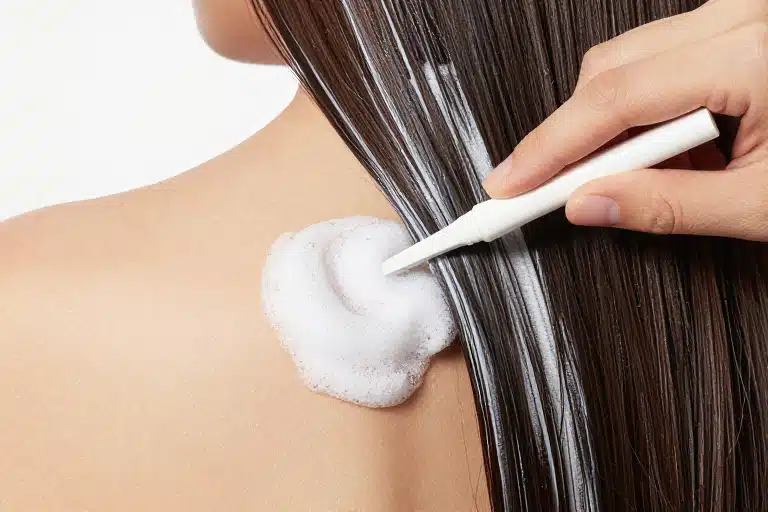
How to Get Hair Dye Off Skin: The Only Guide You Need
Then, you look closer.
There is a spot on your head. It is not hair. It is your skin. It is blue. Or maybe it is red.

How Often Should You Wash Your Hair? The Ultimate Guide
You look at your hair.
It looks flat. It looks dull.
You touch your roots.

